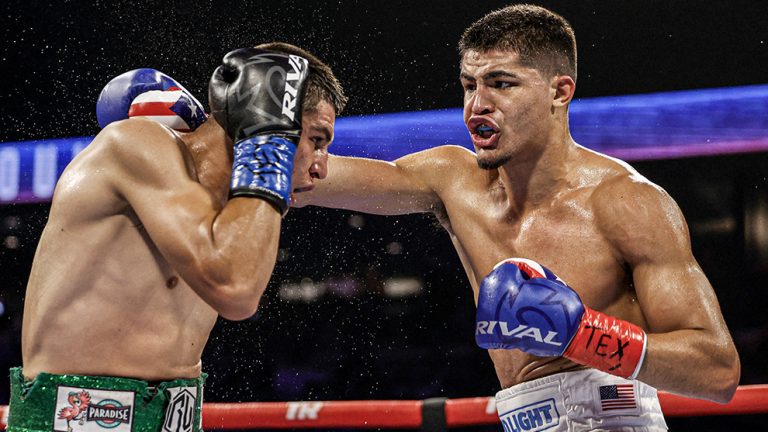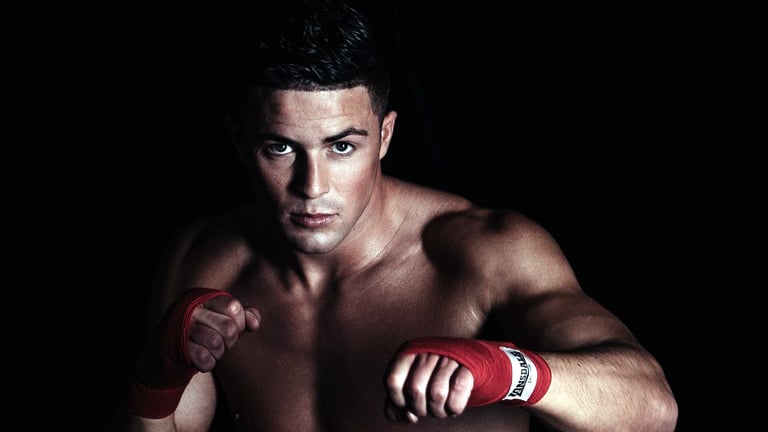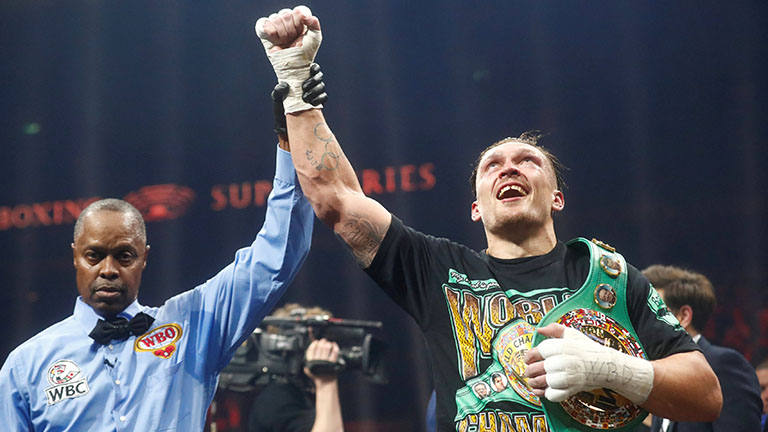Fabio Wardley vs. Frazer Clarke did big numbers – here’s why
YESTERDAY (April 3) it was announced by Sky Sports that Sunday’s British and Commonwealth heavyweight title fight between Fabio Wardley and Frazer Clarke was a resounding ratings success, delivering the broadcaster one of its best nights, in terms of both viewing figures and action, in a decade.
Promoted by Boxxer, and staged at London’s O2 Arena, Wardley vs. Clarke attracted a peak audience of 746,000 for the main event, with an average audience of 438,000 tuning in across the four-hour broadcast. This resulted in an overall reach of around 1.7 million and places Wardley vs. Clarke as the fifth-most watched boxing event on Sky Sports in the last 10 years, behind only Chris Eubank Jnr vs. Liam Williams, Claressa Shields vs. Savannah Marshall, Amir Khan vs. Samuel Vargas and Josh Taylor vs. Jack Catterall.
“It was great to see such a thrilling fight for the British and Commonwealth heavyweight titles, immense bravery from both fighters and huge numbers tuning in to watch,” said Rob Selmes, Sky Sports Director of Rights. “A compelling card was part of a fantastic weekend of live sport on Sky Sports, with millions of sports fans enjoying our coverage and being taken closer to all the action.”
This all sounds very encouraging, of course, and is no less than Wardley and Clarke deserve, yet the key thing amid the euphoria is to surely understand why that fight, in particular, resonated so much with British fans on March 31. Otherwise, the good work of both Wardley and Clarke, as well as Boxxer and Sky Sports, will all be in vain.
So, with this in mind, here are six potential contributing factors:
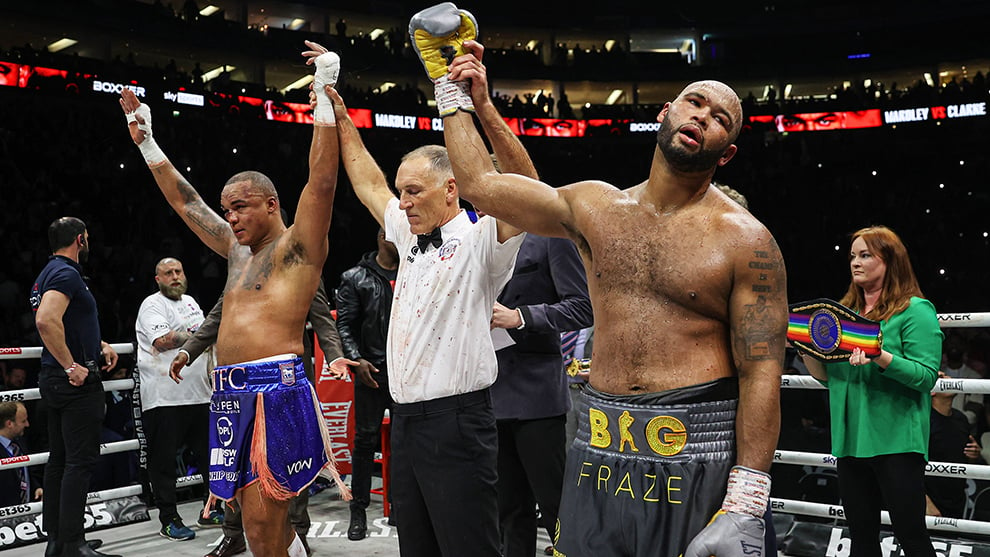
Referee Steve Gray raises the arms of both Fabio Wardley and Frazer Clarke following their British heavyweight title fight at The O2 Arena on March 31, 2024 in London, England (James Chance/Getty Images)
1) We were all awake
There is no getting around the fact that a boxing match taking place at 10 pm will do much better, ratings-wise, than a boxing match taking place at 11 pm or, heaven forbid, midnight. This is common sense – or you’d like to think – and Wardley vs. Clarke stands as yet another example of why a main event should always be televised when the majority of the country are still awake, not tucked up in bed.
2) Heavyweights are fun
Although there is action to be found in each of boxing’s myriad weight classes, still the heavyweight division remains the place to go if you want pure, unbridled, edge-of-the-seat action. It is at heavyweight, after all, intense concentration is required, both on the part of the participants and the viewer, for each of us knows, thanks to history, it takes only one punch for momentum to shift or a fight to end. This was evident again in the fight between Wardley and Clarke on Sunday, as round after round they exchanged not only punches but momentum and battled away admirably despite the ever-present fear of being disconnected from their senses at any moment.
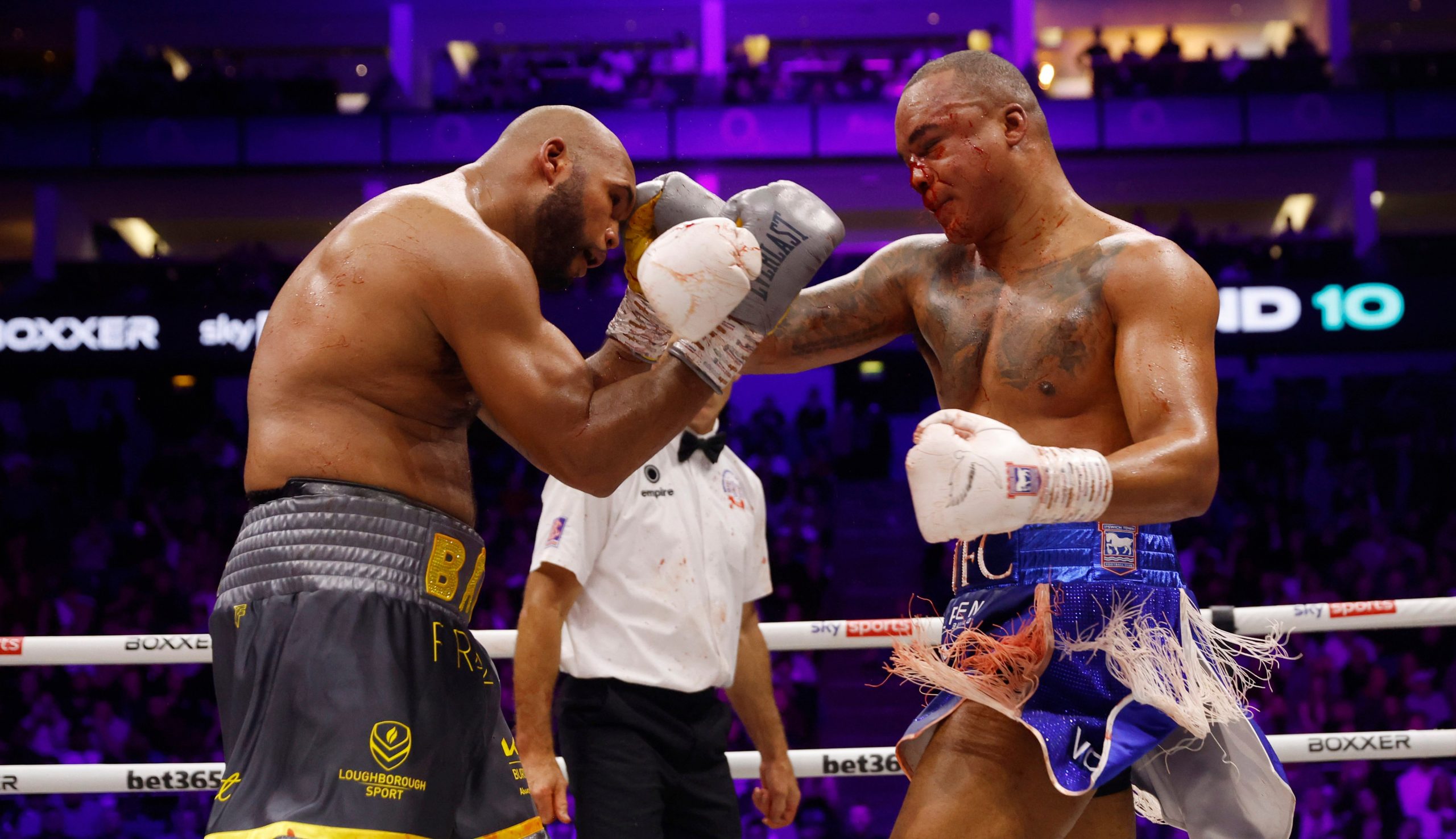
Fabio Wardley and Frazer Clarke go to war (Lawrence Lustig/Boxxer)
3) Nice guys finish first
As easy as it is to think that a bitter rivalry between boxers full of nastiness is the way to go when it comes to selling a fight, sometimes the opposite works just as well. With Wardley and Clarke, for example, you had a rivalry of sort, yes, but it was a friendly rivalry; a competitive rivalry. There was no spite between them, no angry words exchanged, and no bringing the sport into disrepute. Instead, whenever watching the pair discuss this fight, it was impossible not to come away thinking it was a shame that one of the two would have to ultimately lose. (Or not, as the case may be.)
4) Sunday Bloody Sunday
While it’s natural to associate boxing with Friday and Saturday nights, there is a novelty factor to occasionally having it on a Sunday. We have seen this in the past, most recently with Chris Billam-Smith’s last fight, and seemingly having a boxing event on a Sunday gives it a clear run at attracting eyes to the screen. After all, there tends to be less competition on a Sunday. Typically, too, there will be more people at home looking for something to do to pass the time.
5) Domestic sourcing
Wardley vs. Clarke was sold primarily on both the rivalry between the pair and the fact the fight had been put off for a little while until it eventually made sense. In reality, though, perhaps its biggest selling point was what was on the line: the British and Commonwealth heavyweight titles. A reward still as prestigious as it gets for British heavyweights, the sight of that Lonsdale belt being paraded around the ring on Sunday was made all the more powerful by other recent British title fights, notably those involving Nathan Heaney and Brad Pauls and Ashley Lane and Chris Bourke. In short, the British title comes with a quality guarantee.
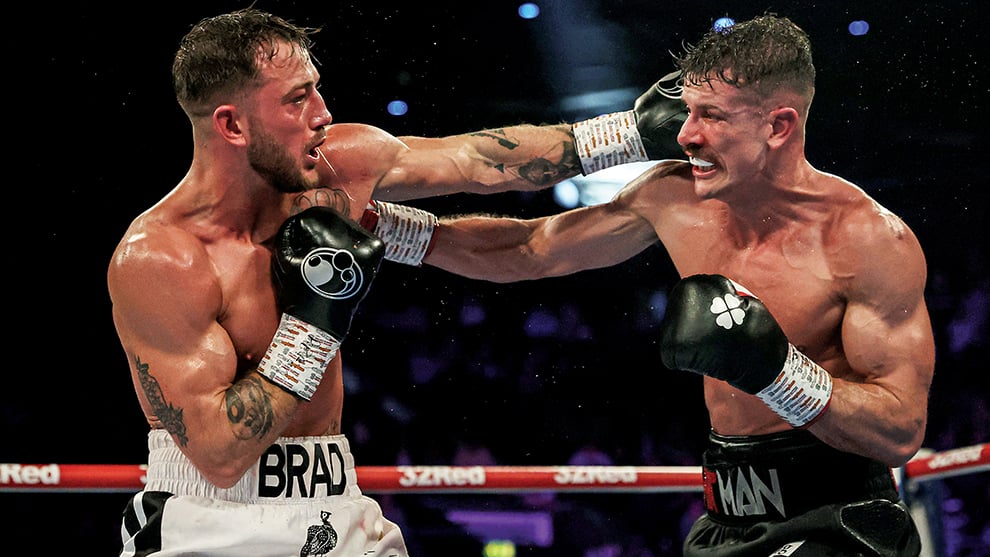
Brad Pauls and Nathan Heaney exchange punches during their British middleweight title fight at Resorts World Arena on March 16, 2024 in Birmingham, England (James Chance/Getty Images)
6) Premier League undercard
Admittedly, there was a hit-and-miss feel to the undercard of Wardley vs. Clarke, with some of it working and some of it a chore to sit through. Yet this was less of a problem than it ordinarily would have been due to a couple of factors: one, the civilised start time of the event, and two, the heavy lifting done by the earlier Premier League football match between Manchester City and Arsenal. That match alone would have brought plenty of eyeballs and interest to Wardley vs. Clarke and, again, thanks to it starting at a reasonable time, and taking place on a Sunday, everything seemed to align and ensure that the football fans stuck with it and, for the most part, followed it through to its bloody and thrilling conclusion.

